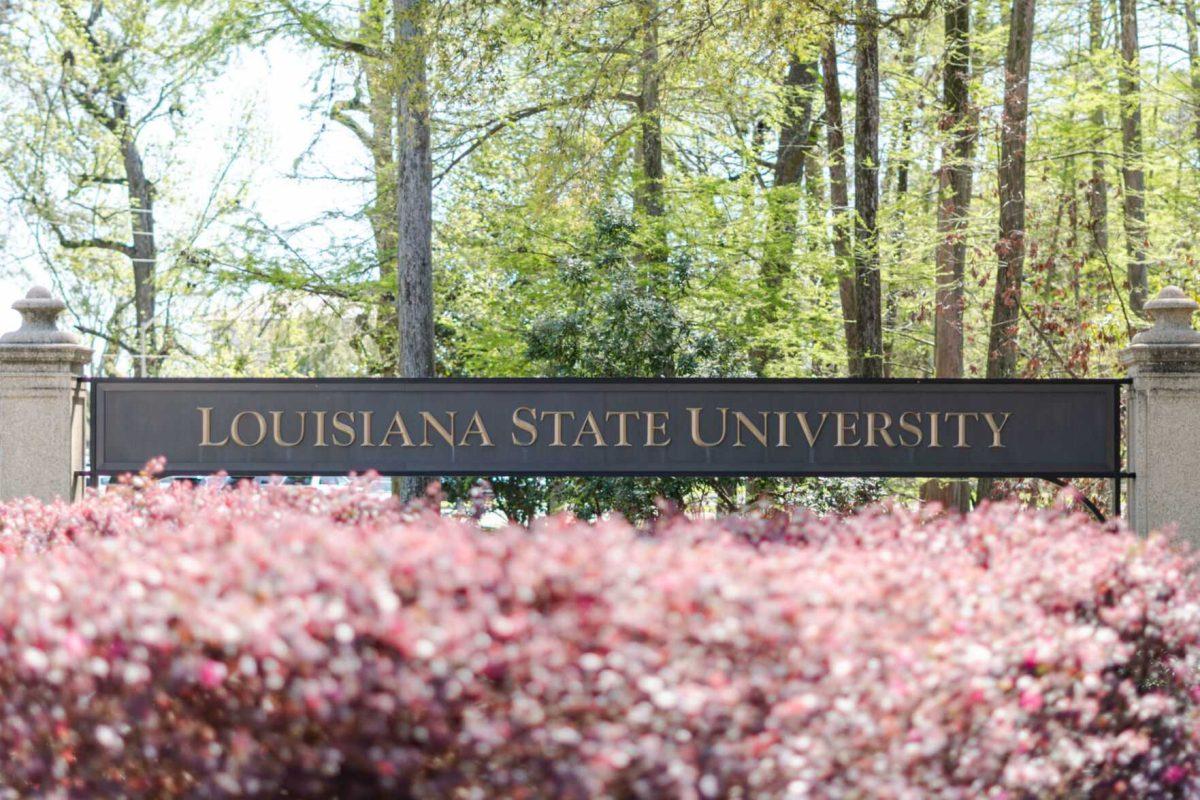Pressure is mounting for LSU President F. King Alexander’s “holistic” admissions.
In the public debate over the University’s more flexible admissions policy, the Louisiana Board of Regents, the state’s authority on higher education policy, made significant progress. Alexander discussed admissions policies and the University’s role in creating them with Board of Regents leadership on Monday, according to Board of Regents member Richard Lipsey.
After weeks of disagreement between Alexander and leading members of the Board of Regents, both sides met on Monday. Louisiana Board of Regents member Richard Lipsey said both sides agreed the University could not change admissions policies on its own. LSU Director of Media Relations Ernie Ballard said the meeting was productive, but refused to comment further on the details of the meeting.
What happens now to the University’s much-touted “holistic” admissions policy, which de-emphasized minimum GPA and test score requirements, will not be clear at least until an audit of University admissions is completed in the spring.
The University’s shift to holistic admissions ignited a public debate over the Board’s responsibility to create admissions standards for public universities across the state. The Board first created admissions standards in 1991. Alexander did not consult the Board of Regents or the LSU Board of Supervisors before implementing holistic admissions.
In a speech to the Baton Rouge Press Club on Oct. 15, Alexander called the Board of Regents’ exception rule a recommendation, and said he is still trying to figure out why the numbers exist in the first place.
“It’s a recommendation from the Regents,” Alexander said. “It’s fluctuated with years. This isn’t even our largest year. We have had years where we have had many more exceptions back in 2012 and last year. It never came up as being something.”
The Board of Regents allows 4 percent of the University’s incoming freshman class to be admitted despite not meeting the Board’s 3.0 unweighted GPA and 22 ACT score requirements. If found not compliant with its policies, the Board of Regents could potentially withhold funds from the University.
Louisiana Gov. John Bel Edwards quickly intervened into the public fight, calling for greater communication amongst the University and the Board of Regents.
“These conversations need to be taking place between LSU and the Board of Regents, and I guess all of our systems,” Edwards said in an email to The Advocate. “We need to be sitting down and doing this collaboratively and not playing it out in the press.”
In addition to the Board of Regents, Alexander also faces pressure from the LSU Faculty Senate. The disconnect between the Faculty Senate and Alexander stems from the University’s lack of transparency regarding this fall’s exception numbers. The Faculty Senate originally voted to implement holistic admissions in 2006.
“We think this is a good thing for identifying students who have a chance for success, but you [have] got to help us help you,” said Faculty Senate President Ken McMillin. “So far [Alexander’s] not doing that.”
McMillin said much of the Faculty Senate’s skepticism regarding holistic admissions comes from the lack of information Alexander and Vice President for Enrollment Management Jose Aviles have provided. McMillin, along with other leaders of the Faculty Senate, met with Aviles last week to get a better grasp on this fall’s exceptions.
“I think part of the problem is strategic communications doesn’t quite understand the message [LSU is] trying to convey and as a result, then the Faculty Senate doesn’t always get the right message,” McMillin said. “I am very disappointed with some of the things that come out of Lakeshore (University Administration Building), either from strategic communications or other aspects of the president’s office.”
Alexander wrote a letter to Louisiana Commissioner of Higher Education Kim Hunter Reed on Sept. 23, defending his holistic admissions policy and detailing the University’s exceptions this fall.
“The holistic review process includes a ‘deeper dive’ into course selection, rigor, persistence, grit and other variables that can assist in the prediction of a student’s success,” Alexander said in the letter. “At the end of the day, the goal is always about improving the rates of success enjoyed by our students.”
The students admitted under the exception rule in 2011 did not enjoy that rate of success. Less than half of them — 48 percent — graduated within six years. The entire fall 2011 freshman class had a six-year graduation rate of 67 percent.
“It’s horrible,” Lipsey said. He is a leading opponent of holistic admissions and a major University benefactor. “This is totally unacceptable and how does Alexander expect to raise the six-year graduation rate when he wants to lower the standards of getting into LSU?”
Lipsey said Alexander should have consulted the Board of Regents before making any policy changes since the Board sets admissions standards for public universities across the state.
The University admitted 433 students who did not meet the required GPA or ACT scores this fall, 7.5 percent of the incoming class. The exceptions had a 21.3 average ACT score and an average GPA of 2.9.
Of the 433 students, 239 were Louisiana residents. Over 100 of the exceptions are students who did not meet the University’s core high school curriculum. These students alone make up 42 percent of the non-resident exceptions.
Louisiana residents not meeting the University’s GPA requirement accounts for 43 percent of exceptions. In his letter to Reed, Alexander argued that these students may have dealt with personal trauma in high school or challenged themselves academically in ways that may not be reflected in their GPAs.
The breakdown of this fall’s exceptions provided to The Daily Reveille by the University said only eight students did not meet the ACT requirement. Another document obtained through the Faculty Senate, shows that there were over 250 students admitted this fall with ACT scores below 21. Among them, 42 students had ACT scores of a 16 or 17.
Alexander’s holistic admissions brought in the largest freshman class in University history. Over 5,800 new students stepped foot on campus this fall. Concerns over lowered standards and graduation rates of exceptions hijack the dialogue on holistic admissions, not the successes of the freshman class. The Board of Regents’ audit aims to breakdown the University’s exceptions, but questions over transparency still linger.







